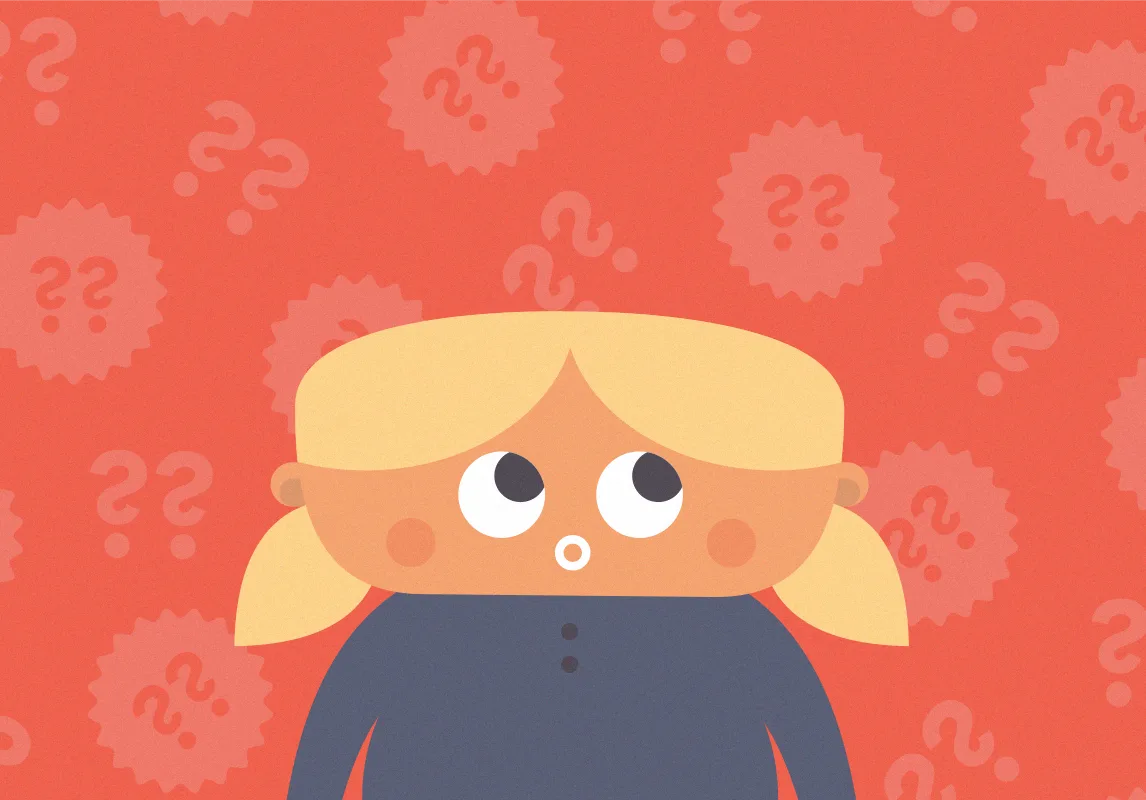How to keep “what if?” from ruling your life
Each time my daughter gets sick, I wonder, inundated with apprehension, "Is this it? Will this be the time we have to say goodbye?"
Parenting a child with a rare genetic disorder can often feel like hanging in the tension between health and illness, perhaps even life and death. Our daughter Brenna was diagnosed at birth with a rare genetic skin disorder that leaves her with susceptibility to skin infections and lack of control over her body temperature, among many other complications. Life will feel easy for a season before any small difference in our daughter’s health threatens that fine balance. But when that balance is off, the questions begin to swirl: “what if Brenna gets desperately ill now? What if the medicine she is taking doesn’t work? What if that family outing yesterday was too much for her?” We all have times where we ask ourselves “what if?”. These thoughts can guide us to imagine big dreams and possibilities, but can also lead us, sometimes very quickly, to dark places where we can only envision worst-case scenarios. When Brenna was an infant, my husband and I made the decision, at the encouragement of our medical team, to not allow the question of “what if something bad happens?” to dictate our daily lives. Though we experience the same worries that many parents do, coupled with our daughter’s increased susceptibility to getting sick, we continually strive to push past the fears regarding her health limitations and appearance differences.
Why? Because, quite simply, we don’t want our parental worries to hinder her from living boldly and experiencing new feelings and activities. We have realized well-meaning parents sometimes limit their children because of their own fears; instead, we hope to allow our daughter to amaze us because of the person she is and can become. Now, years into this parenting journey, even as we often feel suspended between health and sickness, we rely on the awareness of living fully in the here and now as we raise both our son and our daughter. Pushing back against our tendency to question “What if something bad happens?” has been simultaneously uncomfortable and exhilarating, but we have noticed it is becoming easier to instead ask: “How might we be able to accomplish that?” Our “what ifs?” can often take a turn toward fear or failure. But perhaps our lives and attitudes could be immensely transformed by prodding ourselves in a new direction. What if we let our possibilities dictate our living, instead of our perceived limitations and obstacles? What if we assumed the best rather than worried about the worst? What if, guided by respectfulness of others, we let our curiosity and creativity run wild? When we ask these kinds of questions instead, what might we find within ourselves and in our relationships and lives?
My own family has witnessed a rich development of confidence, empathy and self-empathy in both of our children through living by questions like these. We try to maintain an acute awareness of our thoughts and feelings in the moment so we don’t stray toward over-worrying, which can lead to self-imposed, unnecessary limitations. When our daughter says “I want to try that too!”, my husband and I adapt and modify as best as we can to allow participation, even with the threat of an infection or overheating. When others stare or ask about our daughter’s appearance (which looks like a terrible sunburn across her body), we answer confidently, educate them about her skin condition, and steer the conversation to a point of connection so they may learn to see her sameness instead of her skin difference. As I look around me, I can’t help but see so much opportunity to nudge our “what ifs?” toward the exploration of affirmative possibility. When we ask of ourselves “what is the best that could happen?” rather than “what is the worst that could happen?”, we can set ourselves on a fresh path toward deeper compassion, confidence, and joyful living.

What if we assumed the best rather than worried about the worst?
Courtney Westlake


Be kind to your mind
- Access the full library of 500+ meditations on everything from stress, to resilience, to compassion
- Put your mind to bed with sleep sounds, music, and wind-down exercises
- Make mindfulness a part of your daily routine with tension-releasing workouts, relaxing yoga, Focus music playlists, and more
Meditation and mindfulness for any mind, any mood, any goal

Stay in the loop
Be the first to get updates on our latest content, special offers, and new features.
By signing up, you’re agreeing to receive marketing emails from Headspace. You can unsubscribe at any time. For more details, check out our Privacy Policy.
- © 2025 Headspace Inc.
- Terms & conditions
- Privacy policy
- Consumer Health Data
- Your privacy choices
- CA Privacy Notice
